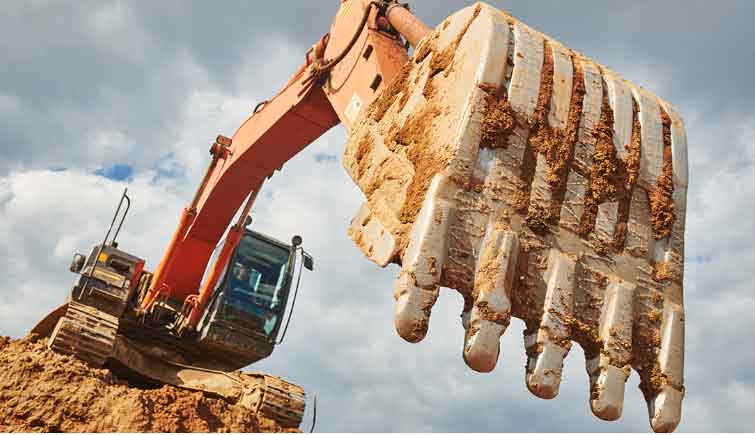
The lifespan of excavator bucket teeth depends on various factors, including the material used, the type of work performed, the ground conditions, the maintenance practices, and the operator’s skill level. Generally, bucket teeth wear over time due to the abrasive nature of the materials they handle, leading to reduced performance and efficiency. Here are some factors that can affect the lifespan of excavator bucket teeth:
- Material Quality: High-quality bucket teeth made from durable and wear-resistant materials, such as high-strength steel alloys, tend to have a longer lifespan compared to lower-quality materials.
- Type of Work: The type of work performed by the excavator, such as digging, loading, trenching, or rock breaking, affects the rate of wear on the bucket teeth. Tasks that involve handling abrasive materials or hard rocks can cause faster wear.
- Ground Conditions: The ground conditions, including the hardness and abrasiveness of the materials being excavated, impact the wear on the bucket teeth. Working in rocky or abrasive soils can lead to accelerated wear.
- Maintenance Practices: Regular maintenance, such as keeping the bucket teeth clean and free from debris, can extend their lifespan. Prompt replacement of worn or damaged teeth is essential to prevent further damage to the bucket and adapter.
- Operator Skill: The operator’s skill level and technique play a role in minimizing unnecessary wear. Skillful operators can reduce wear and tear by using proper digging techniques and avoiding aggressive movements.
- Tooth Design: The design of the bucket teeth, including their shape, profile, and material hardness, can affect their wear resistance and overall lifespan.
- Load Capacity: Overloading the bucket beyond its capacity can cause excessive stress on the teeth and lead to premature wear.
- Environmental Factors: Environmental conditions, such as temperature, moisture, and corrosive elements, can impact the wear on bucket teeth.
- Frequency of Use: Frequent and heavy use of the excavator may result in faster wear on the bucket teeth.
- Quality of Replacement Teeth: The quality of replacement teeth used can also affect their lifespan. Using genuine, high-quality replacement teeth is essential for ensuring optimal performance and longevity.
While bucket teeth are designed to withstand tough working conditions, regular inspection, maintenance, and timely replacement are essential to maximize their lifespan. By employing proper maintenance practices, selecting high-quality materials, and working with skilled operators, it is possible to extend the lifespan of excavator bucket teeth and achieve better cost-efficiency in construction and earthmoving operations.
